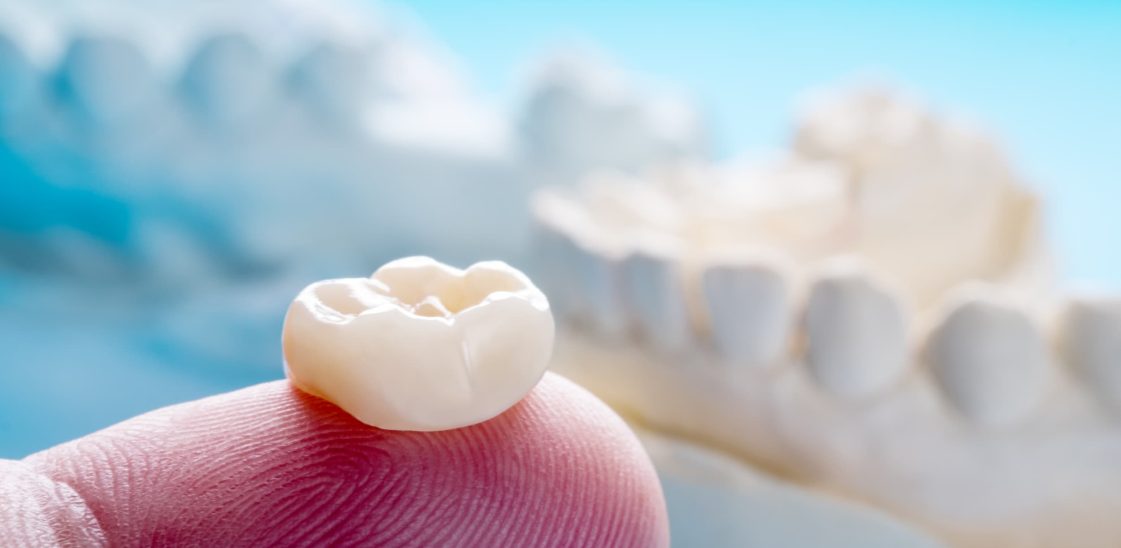
How long do dental crowns last?
A dental crown is a kind of cap used to cover and protect your real teeth. Your dentist might recommend having a crown fitted if your tooth has partially broken, been damaged or decayed, or if you want your teeth to look better.[1]
Whether you use the NHS or a private dentist, getting a crown fitted can be expensive.[2] While it’s always best to look after your teeth as best you can to avoid ever needing a crown, once you need one, it’s good to be informed about what to expect from your new dental crown.
How long should a crown on a tooth last?
Although you might prefer the fitting of a dental crown to be a one-time event, it’s unfortunately the case that they don’t last forever. On average, you can expect your crown will last around five to 10 years – but some people’s crowns last for much longer, such as 20 or even 30 years.
Like most things, the longevity of your dental crown largely depends on how well you look after it. Many things that are bad for your natural teeth are also bad for crowns, including:
- Smoking
- Grinding your teeth (bruxism)
- Poor diet
- Not sticking to a good oral hygiene routine.
It’s also true that the skill of the dentist who fits your crown can have an impact on how long it lasts. A good dentist will take the utmost care when fitting your crown not only to ensure its longevity but also to avoid causing you unnecessary pain during the procedure.
So what can you do to make sure your dental crown lasts as long as possible before it needs to be replaced? Well, the best advice is to stick to a good oral hygiene routine. At the most basic level, this means brushing, flossing and cleaning your tongue every day (twice a day for brushing). Using tools such as Dentek’s Eco Easy Interdental Brushes makes it easier to clean those hard-to-reach surfaces between your teeth, helping to reduce the amount of plaque, food particles and bacteria remaining on your teeth. This helps you to keep both your teeth and any crowns you might have cleaner than brushing alone.[3]
What to do if a tooth crown falls off
Occasionally, things can go wrong and result in your dental crown coming loose from the tooth it was fitted to, similar to how fillings can fall out. If this happens to you, the most important thing is not to panic. While losing a crown isn’t ideal, it can be rectified with the help of a qualified dentist.
First, find the crown. If it has become dirty, you can rinse it off using water, then store it in a tooth saver pot. You can find one of these in Dentek’s Dental First Aid Kit, as well as materials you can use to perform a temporary repair that will help to protect the affected tooth until you can see a dentist.
Once you have followed the instructions on your dental first aid kit and given yourself a temporary repair, get in touch with your local dentist and arrange an emergency appointment. If you can’t get one with your usual dentist surgery, speak to NHS 111 for more advice.
While you wait for your appointment, it’s very important to keep your teeth as clean as possible and avoid exacerbating any damage to the tooth which has lost its crown. Avoid sugary foods and drinks as much as possible, and only consume them at mealtimes if you need to have them. Steer clear of chewing or biting hard foods with the affected tooth, and don’t eat or drink anything that’s either very hot or very cold. This will help you to avoid unnecessary pain.[4]
At your emergency appointment, your dentist will examine the affected area to see if there is any additional damage. They may suggest having a new crown fitted, or another dental treatment may be more appropriate.
Resources:
[1] – https://www.nhs.uk/live-well/healthy-teeth-and-gums/dental-treatments/
[2] – https://www.nhs.uk/nhs-services/dentists/how-much-will-i-pay-for-nhs-dental-treatment/
[3] – https://mft.nhs.uk/app/uploads/sites/3/2018/09/UDH-124.pdf




